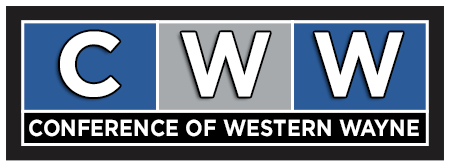These coaches have gone through 12-step-programs for a whole host of addictions, and their ability to say “me, too” seems to be making a difference for Western Wayne Rescue Recovery.
Run by Growth Works Inc., a human services agency in Canton Township, the endeavor to shrink the region’s opioid problems released an annual report on its peer recovery coaching element and the details show success.
About 90 percent of about 900 people approached have agreed to connect with one of the program’s peer recovery coaches. More than 75% of the 565 patients accepting the program between May 2018 and April 2019 were connected to treatment and support services.
It started with peer recovery coaches willing to meet addicts at the hospital, share their own stories and convince them to try their support network.
The peer recovery coaches know what it’s like to be committed to an addict’s lifestyle.
“We say, ‘That was me, too. I did that, too. I did that for alcohol. I did that for drugs.’ It’s that common bond, I think, that’s the magic of it all,” coach Sarah Spencer said.
Opioids range from prescription pain medicine to illegal heroin. Low doses may lead to drowsiness. High doses can slow breathing and heart rates to the point of death.
In 2017, Michigan experienced about 2,000 drug overdose deaths involving opioids, according to a state report, “Drug Overdose Deaths in Michigan.” At least 636 were in Wayne County.
Growth Works partnered with St. Mary Mercy Hospital and the police departments in Livonia, Westland, Canton and Northville Township so peer recovery coaches could connect with opioid users.
“It has been a great success,” said Laura Wojtys, the hospital’s business development manager.
Peer recovery coaches began using their experiences to help others, providing support, guidance and their own stories once the patients leave the hospital and start over again.
“Everybody that comes into the hospital is not on a winning streak,” Spencer said. “Everyone is either desperate for help, trying to dodge a consequence or this is their last option. This is kind of the last hope for them.”
Participants are different, and they have been directed to all sorts of recovery and faith-based endeavors. Coaches may follow them for a full year.
Livonia Police Chief Curtis Caid has been staggered by the program’s success.
“When we began this program, really a short time ago, … I would have never ever thought that we would be that high,” he said of the program’s coaching rate. “Seeing that kind of response from people that are open to this program and open to getting healthy again,…I think those are incredible numbers.”
Douglas O’Brien, a regional director for the U.S. Department of Health and Human Services, visited western Wayne County recently to learn more about peer recovery coaching and share their practices with other agencies.
“We at the national level have really dialed in on what’s happening at the community level,” he said. “We have to come up with new ways to treat addiction. The old paradigm – the 30- (or) 40 -year-old paradigm wasn’t producing the kind of results that any of us in America want to see.
Peer recovery coaching, he added, is finding positive results around the country.
In its first year, Western Wayne Rescue Recovery’s 15 peer recovery coaches took their two years of recovery and training as their guidance.
The endeavor is funded through a multitude of sources including a $500,000 budget allocation from the state.
